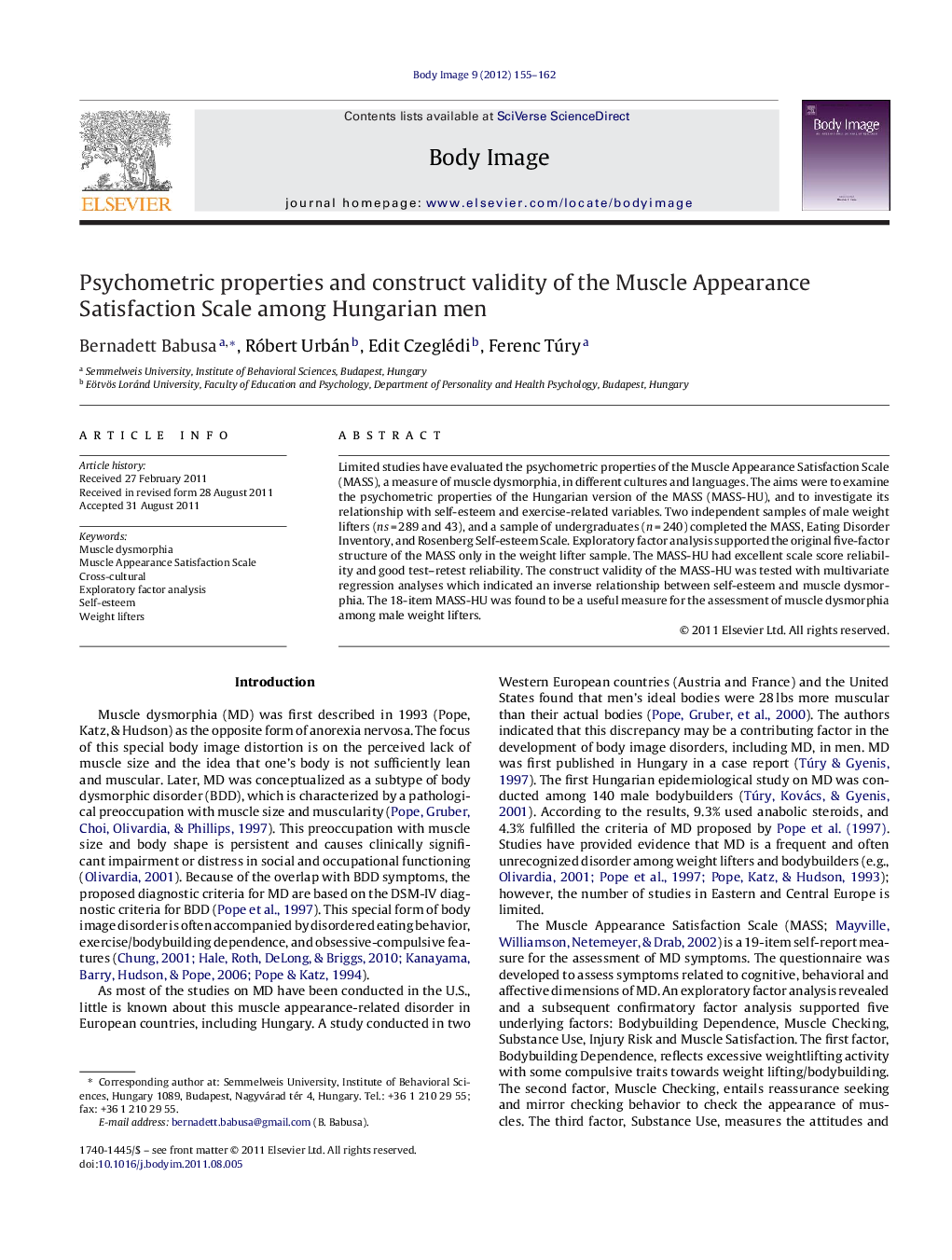| Article ID | Journal | Published Year | Pages | File Type |
|---|---|---|---|---|
| 903211 | Body Image | 2012 | 8 Pages |
Limited studies have evaluated the psychometric properties of the Muscle Appearance Satisfaction Scale (MASS), a measure of muscle dysmorphia, in different cultures and languages. The aims were to examine the psychometric properties of the Hungarian version of the MASS (MASS-HU), and to investigate its relationship with self-esteem and exercise-related variables. Two independent samples of male weight lifters (ns = 289 and 43), and a sample of undergraduates (n = 240) completed the MASS, Eating Disorder Inventory, and Rosenberg Self-esteem Scale. Exploratory factor analysis supported the original five-factor structure of the MASS only in the weight lifter sample. The MASS-HU had excellent scale score reliability and good test–retest reliability. The construct validity of the MASS-HU was tested with multivariate regression analyses which indicated an inverse relationship between self-esteem and muscle dysmorphia. The 18-item MASS-HU was found to be a useful measure for the assessment of muscle dysmorphia among male weight lifters.
► Main purpose was to test the psychometric properties of the Hungarian version of the Muscle Appearance Satisfaction Scale. ► Secondary purpose was to investigate the relationship between the aspects of muscle dysmorphia, self-esteem, and exercise-related variables. ► Results indicated different factorial structures in weight lifter and undergraduate males. ► Scale score reliability and test–retest reliability were supported. ► There is an association between low self-esteem and muscle dysmorphia.
